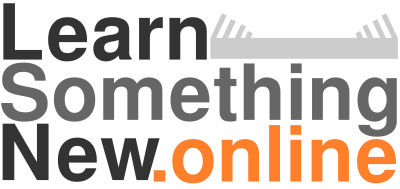Exploring the Dunning-Kruger Effect in Personal Development: Unveiling Self-Awareness Steps
The Dunning-Kruger Effect is a psychological phenomenon in which individuals with limited knowledge or competence in a particular domain greatly overestimate their own ability or knowledge. This cognitive bias leads to overconfidence and can be a significant barrier to personal development.
Psychologists David Dunning and Justin Kruger first identified this effect in a seminal paper published in 1999. Their work has since shed light on why people often remain blissfully unaware of their own incompetence.

Understanding the Dunning-Kruger Effect is crucial for anyone striving for self-improvement. Recognizing this bias within ourselves can be a humbling but necessary step toward growth.
By becoming aware of the limitations in our own expertise, we open the door to learning and acquiring a more accurate self-assessment.
Once individuals acknowledge the areas where they lack proficiency, they can make informed decisions about where to focus their efforts to learn and grow.
Key Takeaways
- Recognizing the Dunning-Kruger Effect can help in personal growth.
- Accurate self-assessment is vital for overcoming this cognitive bias.
- Education and continuous learning are key to mitigate the effects of the Dunning-Kruger phenomenon.
Understanding the Dunning-Kruger Effect

The Dunning-Kruger Effect is a cognitive bias that impacts your self-assessment abilities. It shapes how you perceive your knowledge and skills, often leading to an overestimation of your competence.
Defining Incompetence and Competence
Incompetence refers to a lack of knowledge, skill, or ability, which results in subpar performance.
Competence, on the other hand, means having adequate knowledge and skill to perform tasks successfully. Here’s how these concepts interact:
- Incompetence: The absence of necessary skills and knowledge.
- Competence: The presence of required skills and knowledge leading to satisfactory performance.
Psychology Behind Overestimation
Overestimation occurs when you believe your abilities are higher than they are in reality. This overconfidence can be driven by a low level of competence, ironically, because a lack of knowledge may prevent you from accurately assessing your true performance. Key points about this cognitive bias include:
- It is more common when you have a lower level of skill.
- It diminishes as you gain more knowledge and become more competent.
Origins and Key Studies

Understanding the origins and pivotal studies surrounding the Dunning-Kruger effect will enrich your appreciation for this psychological phenomenon.
Initial Observations by Dunning and Kruger
The Dunning-Kruger effect was first identified by social psychologists David Dunning and Justin Kruger at Cornell University. In their seminal 1999 study, they observed a dual burden: people with lower ability at a task not only fail to recognize their ineptitude but also fail to recognize genuine skill in others.
This cognitive bias involves challenges in metacognition, which is the understanding of one’s own thinking processes.
Major Publications and Findings
In their 1999 paper published in the Journal of Personality and Social Psychology, Dunning and Kruger unveiled their findings in the article titled “Unskilled and Unaware of It: How Difficulties in Recognizing One’s Own Incompetence Lead to Inflated Self-Assessments.”
This publication was seminal in the field of psychology and is widely cited in science and educational literature.
- Title: “Unskilled and Unaware of It”
- Authors: Dunning, Kruger
- Year: 1999
- Key Findings:
- Incompetent individuals tend to overestimate their own skill levels.
- Competent individuals tend to underestimate their relative competence.
- Recognition of competence in others is correlated with one’s own skill level.
Subsequent studies have replicated these findings in various settings, solidifying the Dunning-Kruger effect as a recognized concept in social psychology.
Real-Life Implications

The Dunning-Kruger Effect can significantly impact your ability to grow and achieve in various aspects of life, from personal development to career progression.
Impact on Personal and Professional Growth
Your self-awareness is key to personal development. Without an accurate assessment of your skills and expertise, you may overestimate your capabilities, leading to missed opportunities for growth.
In your professional life, this can translate to poor decision-making or failure to progress, as you might not recognize the need for further learning or training.
- Expertise: Acknowledging gaps in knowledge is critical for acquiring expertise.
- Experience: More experience tends to improve your reasoning and logic, which are essential in mitigating the Dunning-Kruger Effect.
Effect on Society and Various Domains
In larger contexts such as government, the effect can influence policy decisions that impact millions. Leaders without clear insight into their limitations may make uninformed decisions, affecting sectors like medicine and politics.
- Medicine: Mistaken self-assessment by medical professionals can lead to incorrect treatments and can harm patient care.
- Politics: Overconfidence in political figures might lead to suboptimal governance due to flawed reasoning.
Your ability to accurately evaluate your competence plays a crucial role in various domains, influencing both individual growth and societal progress.
Measuring and Identifying Dunning-Kruger

The challenge in identifying the Dunning-Kruger effect involves accurate self-assessment and understanding your own metacognitive abilities. These elements are crucial in reflecting one’s performance and the precision of self-evaluations.
Assessment Techniques
To gauge whether you’re experiencing the Dunning-Kruger effect, it’s helpful to use a variety of assessment techniques.
One such method is item response theory (IRT), which examines your test responses to estimate your ability. It can reveal discrepancies between your perceived and actual performance.
For instance, IRT might show a pattern where you consistently overestimate your skill in areas where your actual test results are lower.
Another approach is to compare your self-assessment scores to objective measures of your performance.
If there’s a significant gap, with your self-assessment being much higher than your actual scores, it could indicate the presence of the Dunning-Kruger effect.
Metacognitive Skills and Self-Assessment
Metacognitive skills involve your awareness of your own cognitive processes. These play a key role in self-assessment, as they allow you to evaluate the accuracy of your own knowledge and decisions.
Enhancing your metacognitive abilities can help you make more realistic self-assessments.
To develop this skill, focus on reflective practices that require you to question your logic and reasoning.
Keep a journal where you record instances when your performance met or fell short of expectations, and note any discrepancies in accuracy. This can lead to a better alignment between your self-perception and actual performance.
Consequences and Examples

In exploring the Dunning-Kruger Effect, you will discover that overconfidence can lead to significant setbacks, while some instances provide learning moments wrapped in humor.
Negative Outcomes of Overconfidence
Driving: It’s common for individuals in the bottom quartile of drivers to overestimate their skills. Such overconfidence can result in regrettable errors on the road, leading to dangerous situations and even traffic accidents.
- Example 1: A study showed that 88% of American drivers believe they are above average, highlighting a clear overestimation of abilities.
- Example 2: You may have seen videos where drivers confidently ignore weather warnings, only to end up in preventable accidents.
These scenarios illustrate how overconfidence in one’s abilities can compromise safety and well-being.
Humorous Anecdotes and Serious Warnings
Behavior: Sometimes, the Dunning-Kruger Effect can be seen in humorous contexts, where overconfidence leads to benign mistakes that serve as gentle reminders to reassess one’s capabilities.
- Anecdote 1: Picture someone attempting to assemble furniture without instructions, confident they can eyeball it, only to end up with a wobbly table.
- Warning 1: In a work setting, overconfidence may cause you to promise a project delivery within an impossible deadline, resulting in stress and potential damage to your reputation.
These stories and warnings can be useful checkpoints for you to evaluate your abilities realistically and avoid overstepping your limits while still maintaining a sense of humor about human fallibility.
Overcoming the Dunning-Kruger Effect

To effectively overcome the Dunning-Kruger Effect, you need practical strategies that foster self-awareness and promote accurate self-evaluation.
Grounded in education and metacognition, these approaches can help mitigate inflated self-assessments and increase your logical reasoning skills.
Strategies for Improved Self-Awareness
- Reflect Regularly: Schedule time for regular self-reflection to assess your knowledge and skills. Use tools like journals or blogs to record and revisit your assessments.
- Seek Feedback: Actively ask for feedback from peers, mentors, or instructors.
- Consider using a structured format, such as a 360-degree feedback mechanism, to gather diverse insights.
- Learn Continuously: Engage in ongoing education through courses, workshops, or reading.
- This not only improves knowledge but also highlights the areas where you may overestimate your abilities.
Encouraging Accurate Self-Evaluation
- Set Clear Goals: Establish specific, measurable, achievable, relevant, and time-bound (SMART) goals to guide your learning and provide benchmarks for assessment.
- Practice Testing: Use self-tests to regularly check your understanding.
- Tools such as quizzes or flashcards can provide objective measures of your proficiency.
- Understand Limitations: Recognize that knowledge has boundaries.
- Familiarize yourself with the limits of your expertise by delving into advanced topics or seeking out complex problems.
The Role of Education and Training

Education and training are essential in progressing along the curve of the Dunning-Kruger effect.
By gaining knowledge and improving skills through structured learning, you set the foundation for accurate self-assessment and continuous growth.
Building Competence Through Knowledge
Acquiring knowledge is the first step to enhance your cognitive competence.
By engaging in formal education, you equip yourself with the foundational theories and principles in your area of interest.
This structured approach ensures that you’re not just absorbing random bits of information but are actually constructing a coherent understanding of the subject.
- Training complements your education by translating theoretical knowledge into practical skill development.
- Through various exercises and hands-on experiences, your ability to apply what you’ve learned takes form.
Example:
| Education Type | Knowledge gained | Skills developed |
|---|---|---|
| Online course | Basic programming concepts | Writing simple code |
| Workshop | Advanced problem-solving techniques | Collaborative work |
| Certification | Industry-standard practices in marketing | Strategic planning |
The Importance of Continuous Learning
Continuous learning is key to personal development and remaining competent in your field.
As you gain experience, your ability to evaluate your own expertise improves.
- Stay updated with the latest trends and advancements to keep your knowledge fresh and relevant.
- Embrace a growth mindset that values the process of learning over the immediate results.
Tips for continuous learning:
- Attend webinars or industry conferences.
- Subscribe to journals or online communities related to your field.
- Set aside time for self-study or pursue new certifications.
By consciously engaging in education and training, you’re not only building your competence but also enabling a realistic self-perception of your abilities and areas for improvement.




